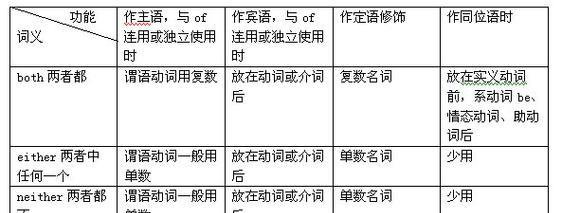在英语语法中,谓语动词的单数形式通常与主语的单数形式相对应。但在某些情况下,即使主语是复数,也需要使用谓语动词的单数形式,例如主语为不可数名词、集合名词、某些固定短语,以及主语为 each, every, either, neither 等单数代词的情况。

主语为不可数名词
不可数名词指的是无法用数目来表示的物质或抽象概念,例如 water, air, love, information 等。在这种情况下,谓语动词通常使用单数形式。
例如:
- The water in the bottle is cold.(瓶子里的水很冷。)
- Love is a wonderful thing.(爱是一件美好的事情。)
主语为集合名词
集合名词指的是由多个人或物组成的集合,例如 team, family, group, class 等。在某些情况下,当集合名词被视为一个整体时,谓语动词使用单数形式。
例如:
- My family is very supportive.(我的家人很支持我。)
- The soccer team is playing well this season.(足球队本赛季表现很好。)
主语为某些固定短语
有些固定短语中的主语被视为单数,因此需要使用谓语动词的单数形式。
例如:
- The United States of America is a large country.(美利坚合众国是一个大国。)
- Mathematics is my favorite subject.(数学是我最喜欢的学科。)
主语为 each, every, either, neither
当主语为 each, every, either, neither 等单数代词时,谓语动词通常使用单数形式。
例如:
- Every student needs to bring a pencil to class.(每个学生都需要带一支铅笔来上课。)
- Either option is a good choice.(两种选择都是好的。)
- Neither of them is coming to the party.(他们两个都不来参加聚会。)

